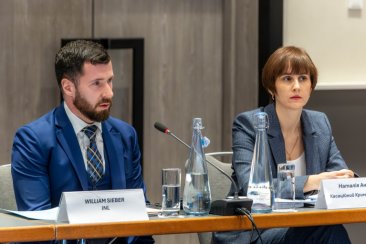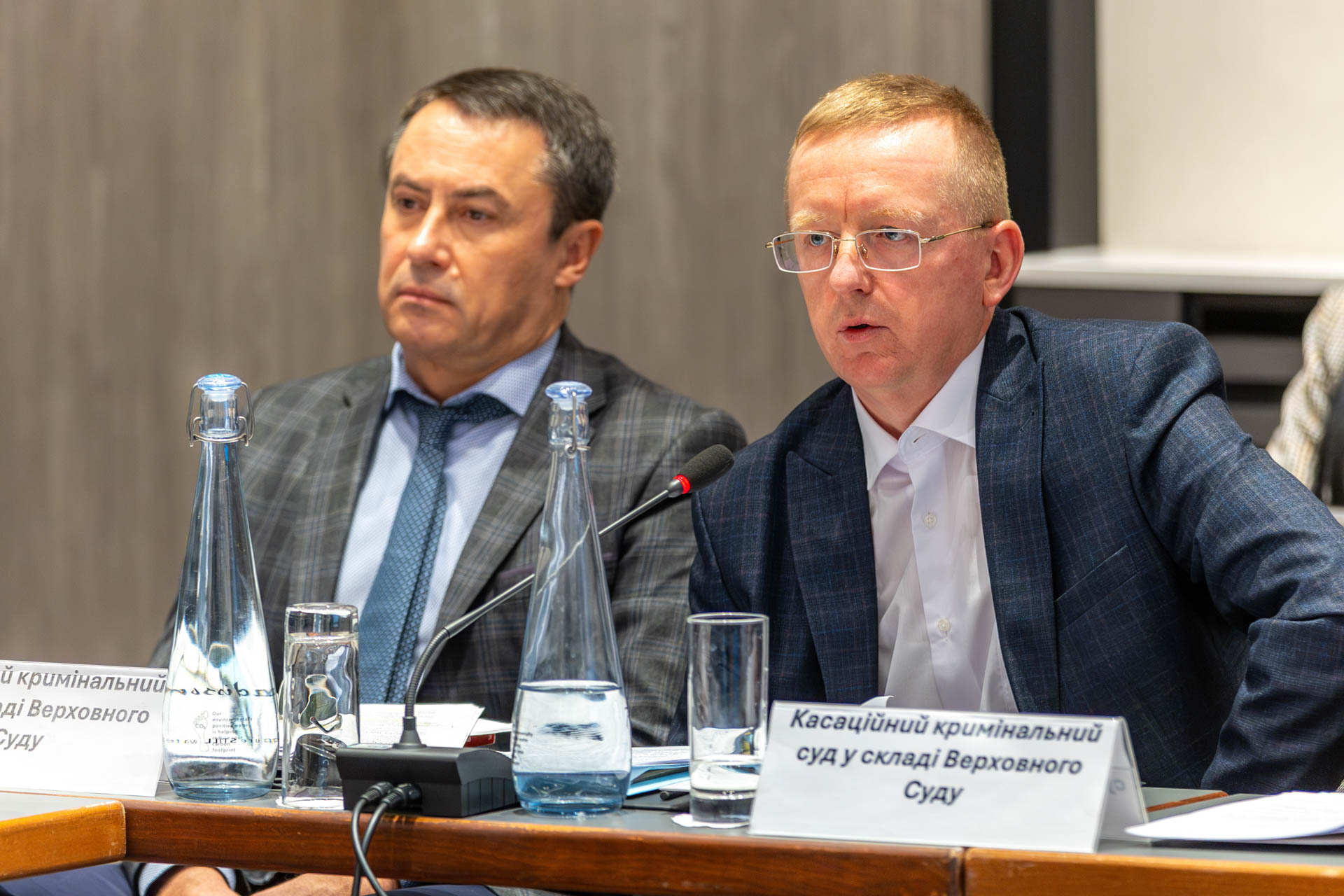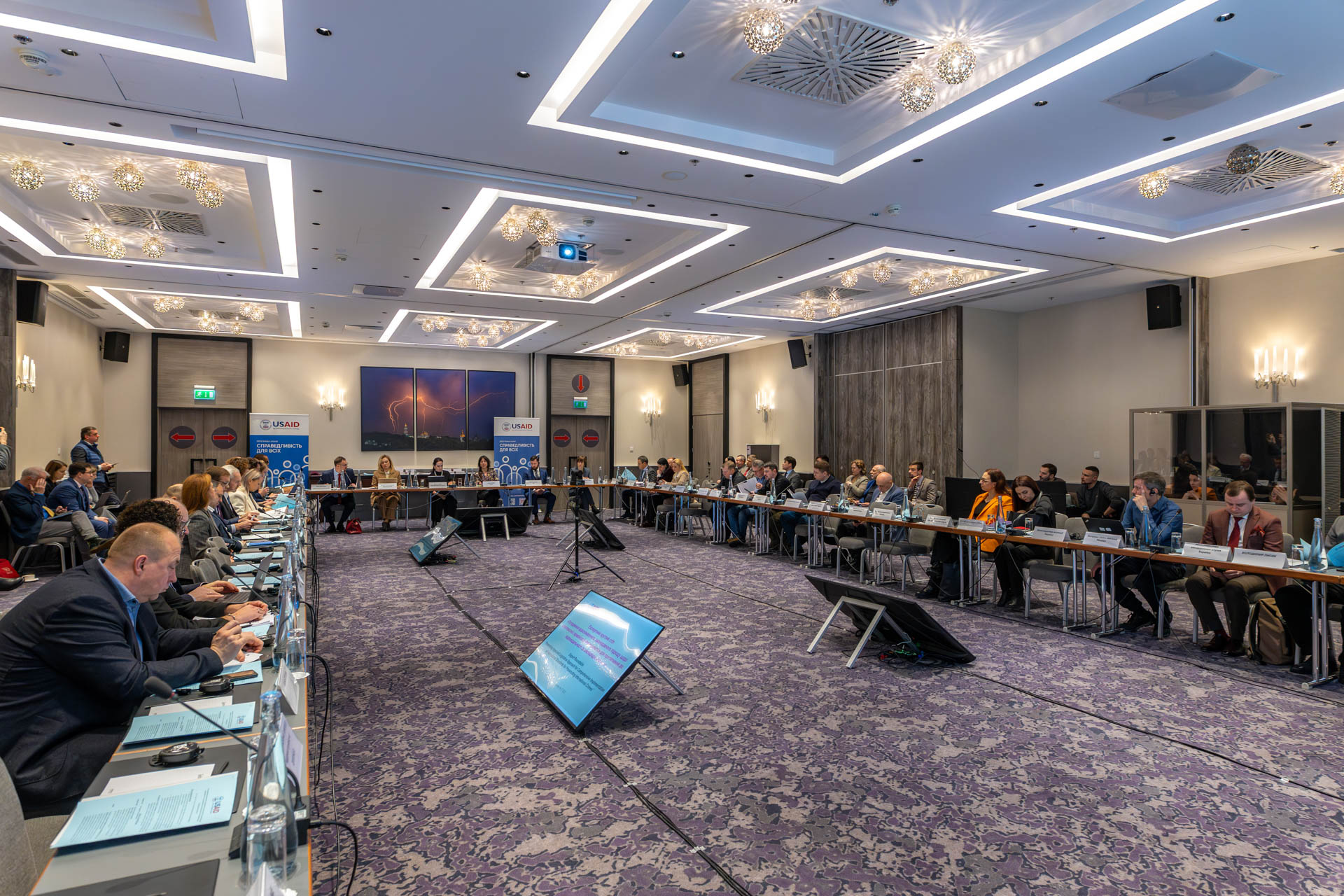Contact center of the Ukrainian Judiciary 044 207-35-46

Nataliia Antoniuk, Vice President of the Criminal Cassation Court of the Supreme Court, as well as Mykola Kovtunovych and Herman Anisimov, judges of the Criminal Cassation Court of the Supreme Court, took part in a roundtable discussion of the implementation legislative changes resulting from the ratification of the Rome Statute of the International Criminal Court and the current state of implementation of international humanitarian and international criminal law in the national legal system.
During the discussion, Nataliia Antoniuk positively described the amendments to the criminal law made in connection with the ratification of the Rome Statute (Law of Ukraine No. 4012-IX of 9 October 2024). In particular, the speaker drew attention to the provisions relating to universal jurisdiction, command responsibility, and amendments to the Special Part of the Criminal Law.
The Vice President of the CrimCC of the Supreme Court stressed that the adoption by Ukraine of separate laws on criminal liability for certain groups of crimes, including war crimes, cannot be called a necessary step. Achieving the goal of fair punishment of war criminals is fully possible using the current version of the Criminal Code of Ukraine, the provisions of which can be clarified or supplemented if necessary.
The practice of other states that have separate special laws establishing criminal liability is interesting for theoretical study. However, first of all, it is necessary to take into account the national doctrine of criminal law and national experience in establishing criminal liability. It is especially important to take balanced steps to amend the criminal law on war crimes now, i.e. at a time when the relevant articles are not only provided for in the Criminal Code of Ukraine, but are actively applied by law enforcement. For practitioners, it is very important that legislative changes do not create problems in the area of law enforcement. Therefore, amendments related to war crimes, firstly, should be discussed with Ukrainian practitioners (judges, law enforcement officers, lawyers), and secondly, should only concern amendments to the current CC of Ukraine, and not the adoption of a separate special law.

Mykola Kovtunovych said: ‘We have to create the most effective legal mechanism for prosecuting international crimes. It is necessary to do this in such a way that the adopted changes will definitely work effectively.’
He added that Ukraine is currently focused on implementing the provisions of the Rome Statute. However, international humanitarian law and its other sources contain a much wider range of prohibitions which we are entitled to criminalise at the national level if necessary.
The event was organised by the USAID Justice for All Program.
Photos courtesy of the organisers.
